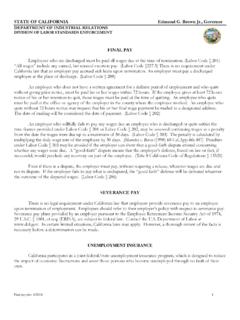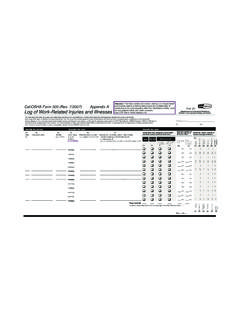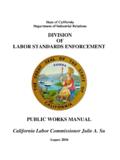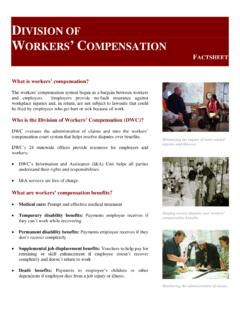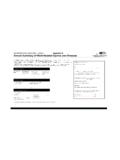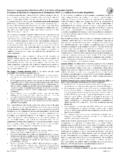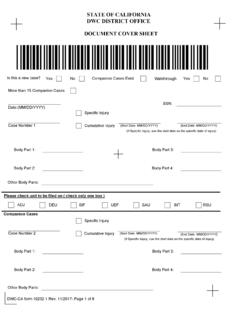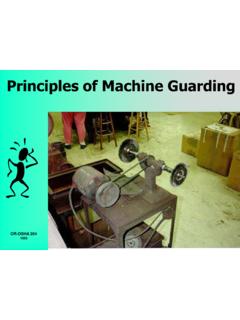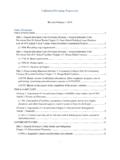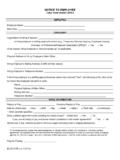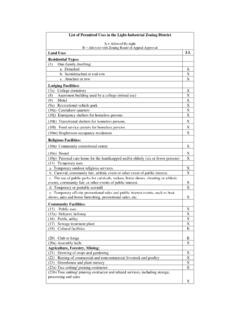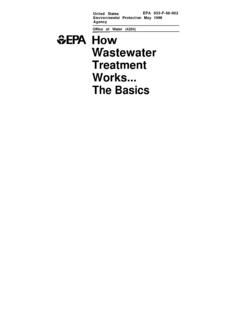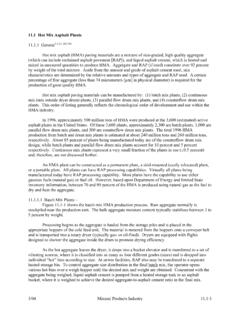Transcription of INDUSTRIAL WELFARE COMMISSION ORDER NO. 14-2001 …
1 OFFICIAL NOTICE INDUSTRIAL WELFARE COMMISSION ORDER NO. 14-2001 REGULATING WAGES, HOURS AND WORKING CONDITIONS IN THE AGRICULTURAL OCCUPATIONS Effective January 1, 2002 as amended Sections 4(A) and 10(C) amended and republished by the Department of INDUSTRIAL Relations, effective July 1, 2014, pursuant to AB 10, Chapter 351, Statutes of 2013 and AB 1835, Chapter 230, Statutes of 2006 This ORDER Must Be Posted Where Employees Can Read It Easily IWC FORM 1114 (Rev. 07-2014) OSP 06 98772 1 Please Post With This Side Showing OFFICIAL NOTICE Effective January 1, 2002 as amended Sections 4(A) and 10(C) amended and republished by the Department of INDUSTRIAL Relations, effective January 1, 2007, pursuant to AB 1835, Chapter 230, Statutes of 2006 INDUSTRIAL WELFARE COMMISSION ORDER NO.
2 14-2001 REGULATING WAGES, HOURS AND WORKING CONDITIONS IN THE AGRICULTURAL OCCUPATIONS TAKE NOTICE: To employers and representatives of persons working in industries and occupations in the State of California: The Department of INDUSTRIAL Relations amends and republishes the minimum wage and meals and lodging credits in the INDUSTRIAL WELFARE COMMISSION s Orders as a result of legislation enacted (AB 10, Ch. 351, Stats of 2013, amending section of the California Labor Code, and AB 1835, Ch. 230, Stats of 2006, adding sections and to the California Labor Code .) The amendments and republishing make no other changes to the IWC s Orders.
3 1. APPLICABILITY OF ORDER This ORDER shall apply to all persons employed in an agricultural occupation whether paid on a time, piece rate, COMMISSION , or other basis, except that: (A) No provision of this ORDER shall apply to any employee who is engaged in work which is primarily intellectual, managerial, or creative, and which requires exercise of discretion and independent judgment, and for which the remuneration is not less than two (2) times the monthly state minimum wage for full-time employment. (B) No provision of this ORDER shall apply to any individual who is the parent, spouse, child, or legally adopted child of the employer.
4 (C) Section 5 of this ORDER shall not apply to any employer who employs fewer than five (5) persons covered by this ORDER . If at any one time during a calendar year an employer has five (5) or more employees covered by this ORDER , every provision of this ORDER , including Section 5, Reporting Time Pay, shall apply to that employer throughout that calendar year. (D) No provision of this ORDER shall apply to any employee covered by ORDER No. 8 or ORDER No. 13, relating to industries han- dling products after harvest. (E) The provisions of this ORDER shall not apply to any individual participating in a national service program, such as Ameri- Corps, carried out using assistance provided under Section 12571 of Title 42 of the United States Code.
5 (See Stats. 2000, ch. 365, amending Labor Code Section 1171.) (F) Sections 3, 4(A)-(D), 5, 6, 9, 11, 12, and 13 of this ORDER shall not apply to an employee engaged to work as a sheepherder, as that occupation is defined in Section 2 (N). Otherwise, this ORDER , including Section 4 (A), shall apply to any workweek during which a sheepherder employee is engaged in any non-sheepherding agricultural or other work. (G) Section 3 of this ORDER shall not apply to an employee licensed pursuant to Article 3 (commencing with Section 7850) of Chapter 1 of Part 3 of Division 6 of the Fish and Game Code who serves as a crew member on a commercial fishing vessel.
6 2. DEFINITIONS (A) COMMISSION means the INDUSTRIAL WELFARE COMMISSION of the State of California. (B) Division means the Division of Labor Standards Enforcement of the State of California. (C) Employ means to engage, suffer, or permit to work. (D) Employed in an agricultural occupation means any of the following described occupations: (1) The preparation, care, and treatment of farm land, pipeline, or ditches, including leveling for agricultural purposes, plowing, discing, and fertilizing the soil; (2) The sowing and planting of any agricultural or horticultural commodity; (3) The care of any agricultural or horticultural commodity; as used in this subdivision, care includes but is not limited to cultivation, irrigation, weed control, thinning, heating, pruning, or tying, fumigating, spraying, and dusting.
7 (4) The harvesting of any agricultural or horticultural commodity, including but not limited to picking, cutting, threshing, mowing, knocking off, field chopping, bunching, baling, balling, field packing, and placing in field containers or in the vehicle in which the commodity will be hauled, and transportation on the farm or to a place of first processing or distribution; (5) The assembly and storage of any agricultural or horticultural commodity, including but not limited to, loading, road sid- ing, banking, stacking, binding, and piling; (6) The raising, feeding and management of livestock, fur bearing animals, poultry, fish, mollusks, and insects, including but not limited to herding, housing, hatching, milking, shearing, handling eggs, and extracting honey; (7) The harvesting of fish, as defined by Section 45 of the Fish and Game Code, for commercial sale; (8) The conservation, improvement or maintenance of such farm and its tools and equipment.
8 (E) Employee means any person employed by an employer. 2 (F) Employer means any person as defined in Section 18 of the Labor Code, who directly or indirectly, or through an agent or any other person, employs or exercises control over the wages, hours, or working conditions of any person. (G) Hours worked means the time during which an employee is subject to the control of an employer, and includes all the time the employee is suffered or permitted to work, whether or not required to do so. (H) Minor means, for the purpose of this ORDER , any person under the age of 18 years. (I) Non-sheepherding work means any work except the work defined in Section 2(N) below.
9 (J) Open range sheepherding means, generally, sheepherding on land that is not cultivated, but produces native forage ( browse or herbaceous food that is available to livestock or game animals) for animal consumption, and includes land that is re-vegetated naturally or artificially to provide forage cover that is managed like range vegetation. The range may be on private, federal, or state land. Typically, the land is not only non-cultivated, but not suitable for cultivation because it is rocky, thin, semiarid, or otherwise poor. Also, many acres of range land are required to graze one animal unit (five sheep) for one month.
10 By its very nature, open range sheepherding is conducted over wide expanses of land, such as thousands of acres. (K) Outside salesperson means any person, 18 years of age or over, who customarily and regularly works more than half the working time away from the employer s place of business selling tangible or intangible items or obtaining orders or contracts for products, services or use of facilities. (L) Piece rate basis is a method of payment based on units of production or a fraction thereof. (M) Primarily as used in Section 1, Applicability, means more than one-half the employee s work time. (N) Sheepherder means any individual who is employed to do any of the following: tend flocks of sheep grazing on range or pasture; move sheep to and about an area assigned for grazing; prevent sheep from wandering or becoming lost, or using trained dogs to round up strays and protect sheep against predators and the eating of poisonous plants; assist in the lambing, docking, and shearing of sheep; provide water or feed supplementary rations to sheep.
